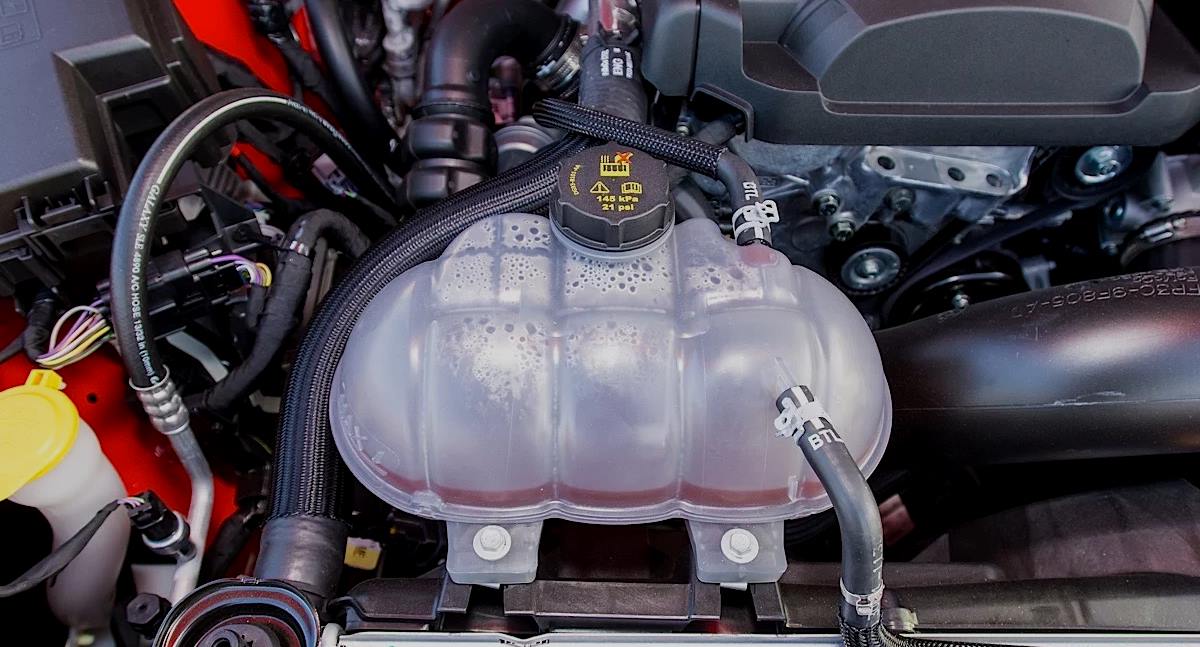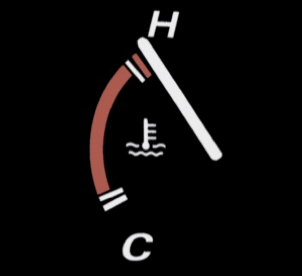What does a high engine temperature mean?
Engines are made out of durable materials and are designed to withstand a lot of heat. However, prolonged exposure to high levels of heat can wear and damage engine components. For this reason, cooling systems are used to regulate engine temperature. The cooling system sends coolant through your engine, which decreases engine temperature. This flow of coolant is controlled by a thermostat, which opens and closes in relation to engine temperature.
High engine temperatures are usually caused by your engine not being able to cool itself. This can happen for many reasons but is most commonly attributed to a fault in the cooling system. Excess heat can cause damage to rotating parts and deformation of vital engine components.
Learn more about how the cooling system works >
What to do when your car overheats:
You can monitor the temperature of your engine by reading the temperature gauge on your dashboard. If the temperature is slowly climbing above half way on the engine temperature gauge, pull over and give your engine a chance to cool down. If the problem persists, we recommend that you stop driving and arrange for your car to be towed. The costs of towing a car are a fraction compared to the costs associated with replacing a damaged engine.
Common causes of high engine temperatures:
Coolant leak – If your cooling system develops a leak, the coolant levels will eventually run low. This will prevent the necessary amounts of coolant from reaching your engine, resulting in overheating. Coolant leaks should be fixed as soon as they are noticed to prevent damage from occurring.
Thermostat stuck shut – The thermostat opens and closes to let coolant into the engine according to its temperature. A faulty thermostat can become stuck closed, restricting the flow of coolant to the engine.
Blocked hoses – Coolant flows through hoses in order to reach the engine. If these hoses become blocked, the flow of coolant will be restricted, causing overheating. Sometimes a radiator hose can collapse and as the water circulates water around the engine, the collapsed radiator hose prevents or restricts cooling system water flow.
Drive belt problems – The drive belt powers several important parts of your car, often including the water pump. If the drive belt fails, coolant won’t be pumped around your engine correctly. If you notice overheating as well as sometimes power steering and battery charging problems, the drive belt is probably the cause of the issue.
Drive belt replacement in Hamilton >
Oil leaking or due for replacement – Oil lubricates your engine, preventing friction which causes heat. If the oil is not lubricating the engine’s moving parts correctly, your engine’s temperature will be higher than normal.
Engine running lean – when an engine runs lean it often runs hotter than normal, which can increase the chances of the engine overheating.
Radiator fans not working – if the radiator cooling fans stop working then your engine may overheat, especially at slow car speeds or while the car is idling.
Blown head gasket – if the cylinder head gasket is blown / leaking then the gases that escape the cylinder head gasket can put pressure into the cooling system, which means the cooling system can loose water and therefore overheat.
Overheating Engine – Inspection, Servicing & Diagnostics in Hamilton
Is your car’s engine overheating? If so, we can help! At Grimmer Motors, our team of experienced mechanics can assess your cooling system for issues. Once we have diagnosed the issue, we can provide high-quality services, new parts and replacements that you can rely on. This will keep your engine’s temperature at a healthy level, preventing expensive damage from occurring.
For cooling system and engine services in Hamilton, contact Grimmer Motors today!


